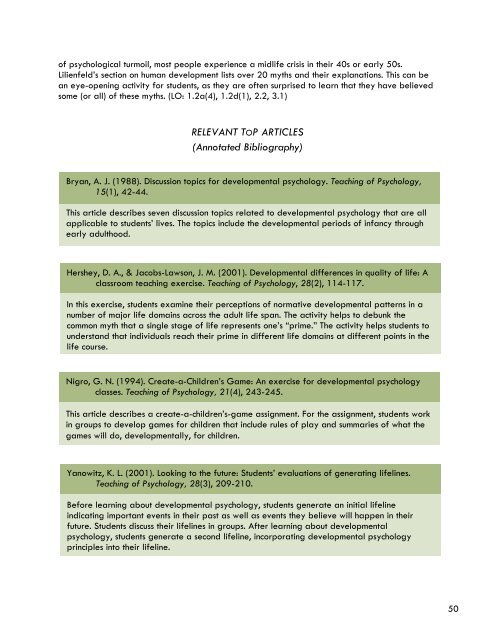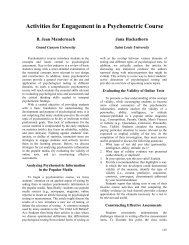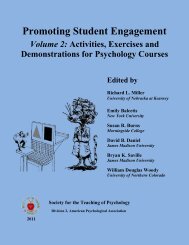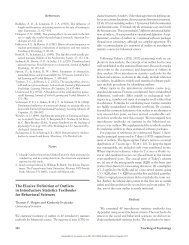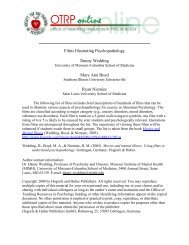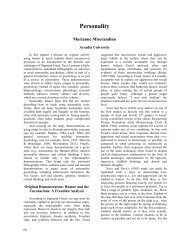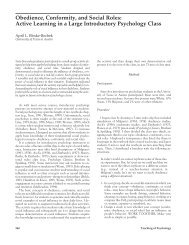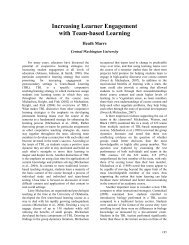INTRODUCTORY PSYCHOLOGY TEACHING PRIMER Early Career ...
INTRODUCTORY PSYCHOLOGY TEACHING PRIMER Early Career ...
INTRODUCTORY PSYCHOLOGY TEACHING PRIMER Early Career ...
You also want an ePaper? Increase the reach of your titles
YUMPU automatically turns print PDFs into web optimized ePapers that Google loves.
of psychological turmoil, most people experience a midlife crisis in their 40s or early 50s.<br />
Lilienfeld’s section on human development lists over 20 myths and their explanations. This can be<br />
an eye-opening activity for students, as they are often surprised to learn that they have believed<br />
some (or all) of these myths. (LO: 1.2a(4), 1.2d(1), 2.2, 3.1)<br />
RELEVANT TOP ARTICLES<br />
(Annotated Bibliography)<br />
Bryan, A. J. (1988). Discussion topics for developmental psychology. Teaching of Psychology,<br />
15(1), 42-44.<br />
This article describes seven discussion topics related to developmental psychology that are all<br />
applicable to students’ lives. The topics include the developmental periods of infancy through<br />
early adulthood.<br />
Hershey, D. A., & Jacobs-Lawson, J. M. (2001). Developmental differences in quality of life: A<br />
classroom teaching exercise. Teaching of Psychology, 28(2), 114-117.<br />
In this exercise, students examine their perceptions of normative developmental patterns in a<br />
number of major life domains across the adult life span. The activity helps to debunk the<br />
common myth that a single stage of life represents one’s “prime.” The activity helps students to<br />
understand that individuals reach their prime in different life domains at different points in the<br />
life course.<br />
Nigro, G. N. (1994). Create-a-Children’s Game: An exercise for developmental psychology<br />
classes. Teaching of Psychology, 21(4), 243-245.<br />
This article describes a create-a-children’s-game assignment. For the assignment, students work<br />
in groups to develop games for children that include rules of play and summaries of what the<br />
games will do, developmentally, for children.<br />
Yanowitz, K. L. (2001). Looking to the future: Students’ evaluations of generating lifelines.<br />
Teaching of Psychology, 28(3), 209-210.<br />
Before learning about developmental psychology, students generate an initial lifeline<br />
indicating important events in their past as well as events they believe will happen in their<br />
future. Students discuss their lifelines in groups. After learning about developmental<br />
psychology, students generate a second lifeline, incorporating developmental psychology<br />
principles into their lifeline.<br />
50


